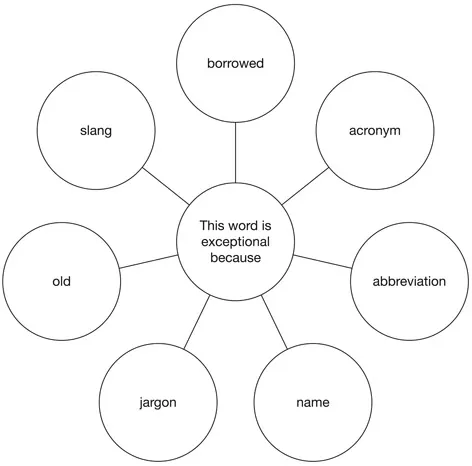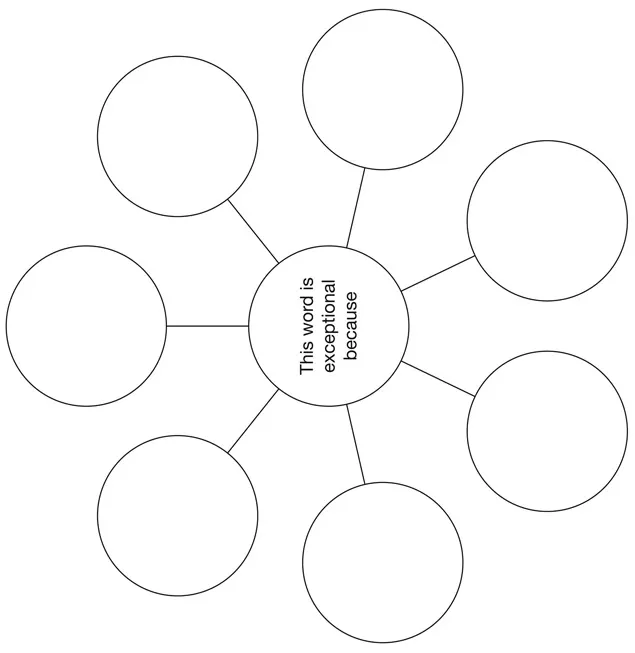
Spelling for Life
Uncovering the simplicity and science of spelling
Lyn Stone
- 280 pages
- English
- ePUB (adapté aux mobiles)
- Disponible sur iOS et Android
Spelling for Life
Uncovering the simplicity and science of spelling
Lyn Stone
À propos de ce livre
A recent survey of 200 teachers asking the question 'spelling is…?' resulted in the following adjectives: 'difficult', 'complex', 'confusing', 'random', 'confounding'. Spelling for Life offers lucid, accessible tools which help to reveal that, when explicitly and systematically taught, spelling is scientific, law-abiding and even elegant.
It explains that spelling is the manipulation of symbols according to agreed-upon patterns that produce predictable results. Spelling errors also fall into sets of predictable patterns. Success in spelling is not a product of intelligence. Many people struggle to spell due to coping strategies developed in place of explicit instruction. What gives spelling its 'complex' veneer is the fact that different ways of thinking are required at different levels from word to word. Some words can be spelt as they sound, others have to be visually memorised and some rely on knowledge of core rules about word-structure. A lot of words require more than one strand of knowledge. This book makes clear which strand needs to be applied in different situations.
Often pupils who can read and express themselves competently nevertheless find spelling difficult. False assumptions about spelling, such as believing the English language is complex and/or irregular, damage confidence and lead to reluctance to even attempt to spell correctly.
Spelling For Life enables teachers andpupils to:
- learn what the common spelling coping strategies are
-
- gain insights into undoing poor spelling habits
-
- work together to notice patterns not only in regular spelling, but also in words which on the surface seem to break the spelling rules
-
- practise successful spelling strategies, progressing from simple to complex words rapidly and with confidence.
-
Using a synthesis of theory, research and teaching experience, the fascinating nature of English spelling is systematically teased out. The examples and exercises offer an encouraging, accessible way to implement the programme of study and strive to reveal the beauty of spelling. Aided by example lessons, progressive assessments, unique tools and extensive practice lists, this highly acclaimed overview of spelling succeeds in developing critical thinking and confidence when reading and spelling. It can be used in conjunction with any established phonics programme.
Foire aux questions
Informations
1
Broken rules and word stories
Exceptions
- notice which rule applies or is broken
- investigate the reason for the perceived break, i.e. the word story
- assign the words to groups that share common characteristics, what we will call word families.
- Borrowed words – as we move toward globalisation, words from other languages continue to swell our lexicon (‘spaghetti’, ‘ski’, ‘haiku’).
- Abbreviations – words which, when shortened, break conventional spelling rules (‘rev’ from ‘revolution’, ‘taxi’ from ‘taxicab’, ‘mini’ from ‘miniature’).
- Acronyms – words made from the first letter or letters of other words (‘Qantas’, ‘lol’ etc.).
- Names – place names often break the core rules because they belong to other languages with other sets of rules (‘Iraq’, ‘Benghazi’). Human names often don’t conform because they are created through a process of parental invention rather than linguistic evolution (‘Dannii’, ‘Keanu’).
- Jargon – technical/scientific vocabulary (‘radii’, ‘caesarean’, ‘schwa’).
- Old and/or common – words that are obeying rules from times past, whose spelling hasn’t caught up with the way we say them (‘horse’, ‘have’, ‘could’, ‘of’).
- Slang – vocabulary used by a particular generation of younger speakers or groups (‘chav’, ‘wassup’, ‘ermahgerd’).
Lesson plan
Skill level
Materials
- Figure 1.1 Mouth picture
- Figure 1.2 Book picture
- Figure 1.3 Word stories example worksheet
- Figure 1.4 Word stories blank worksheet.



Pattern
Error pattern
Duration
Step 1
